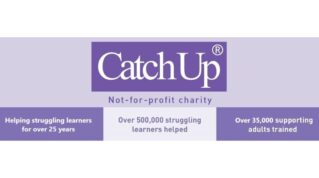In this article we answer the following questions:
- Just how difficult is it to keep compliant?
- What are school leaders most worried about when it comes to compliance?
- What’s the minimum level of compliance expected in Education?
- How do you go from ‘good’ to Gold Standard levels of compliance?
- A timely example: The School Website – what’s changed and what you need to do next?
- How can you keep up to date without adding to the payroll or consultancy budget?
- How can we help you achieve, demonstrate and celebrate Gold Standard compliance?
Just how difficult is it to keep compliant?
For almost a decade now, the team at Hub4Leaders has worked with schools, academies and MATs to keep them compliant in high-risk areas.
Some changes are predictable, at least in their frequency if not in their nature – for example, safeguarding guidance contained in ‘Keeping children safe in education’ is highly likely to change annually.
Some changes are pivotal shifts in overarching policy, such as the introduction of The General Data Protection Regulation (GDPR).
And some changes are entirely unpredictable and force leaders in Education to be reactive on a daily basis, such as the ever-changing COVID-19 guidelines schools tirelessly implemented from 2020 onwards with great composure in challenging circumstances.
In 2021 alone, the DfE released 750 guidance updates. Alongside legal, data protection, HR and all other associated changes, it is incredibly difficult for schools, academies and MATs to keep pace with the changes and implement compliant solutions without a significant drain on time and resource.
What are school leaders most worried about when it comes to compliance?
62% of school leaders told us that compliance plays a large part in their role and that their top three concerns are:
- Safeguarding
- Health and safety
- Data protection
With budgets stretched further than ever before, a tiny minority of establishments can afford a dedicated compliance officer.
Yet, compliance excellence and inimizing risk exposure requires a dedicated solution as requirements are constantly in flux. Keeping up-to-code without a major investment in time or resource is extremely challenging.
What’s the minimum level of compliance expected in Education?
We asked James Barron from Forbes Solicitors, a fantastic partner of Hub4Leaders, what does ‘good’ look like when it comes to compliance. Here’s what he told us:
“Managing compliance can be a difficult thing. The requirements for schools are located in so many different documents and bits of guidance that ensuring you are doing everything you need to be doing can be a challenge by itself. That is why I would see ‘good’ compliance as basically doing everything you should be doing.
For schools, I would not see doing everything you are required to do as the absolute minimum baseline standard, as the work and resources that are needed to meet that baseline are such that if you are at that level then I would say you are at a good level of compliance.”
How do you go from ‘good’ to Gold Standard levels of compliance?
A ‘good’ level of performance should always be something to be proud of; however, when it comes to compliance, ‘good’ is not good enough. Safeguarding, health and safety, data protection and legal requirements are simply too important for ‘good’ to be acceptable. Gold Standard levels of excellence must be the goal.
How do you become outstanding? Here’s what James had to say:
“To go beyond ‘good’ to the next step, schools need to implement those issues in DfE guidance that are perhaps optional. DfE guidance has a habit of changing a requirement from optional to essential so as well as being more robust in your procedures by doing this, you are also future proofing yourself against measures you may need to implement in the future.
To become truly outstanding from a compliance perspective requires schools to look at two key factors, which are linked. This is horizon-scanning to understand what you might need to do in the future but also looking at practices outside the Education sector that can be applied to your own setting. Now these factors are to a large extent linked as generally practice from other areas are those issues which are likely to be recommended to schools in the future, but putting these practices into place and embedding them as soon as possible is a true indicator of outstanding practice.
Truly outstanding levels of compliance, therefore, will look beyond DfE guidance and look at the practices of compliance from the corporate world and the charity sector to see if there are practices they could borrow and implement themselves.”
A timely example: The School Website – what’s changed and what you need to do next?
On 5 September 2022, new school website requirements came into place and were applied with immediate effect.
Without constantly scanning the inbox, newsfeed or newsletters, these changes can easily fly under the radar of busy school leaders returning to school during a typically chaotic period as new pupils, staff members and priorities settle in.
If you missed this change, don’t worry, here’s everything you need to know:
The key points are as follows:
- Schools must publish their school uniform policies
- Schools should publish their opening hours
- Schools do not need to publish 2021/2022 KS2 results
- Schools need to publish KS4 and 16-18 results
Now let’s look at each key point in detail.
Schools must publish their school uniform policies
Maintained schools and academies must publish their uniform policies on their websites. This requirement has been introduced to reflect the DfE’s statutory ‘Cost of school uniforms’ guidance.
Schools should publish their opening hours
Maintained schools and academies should publish their opening and closing times and the total amount of time this amounts to in a typical week. The information should show the compulsory times the school is open from the start to the end of the school day, not including any before- and after-school clubs.
As the DfE says maintained schools and academies “should” publish this information, it is not a statutory requirement.
Schools do not need to publish 2021/2022 KS2 results
The DfE has confirmed that primary schools do not need to publish their KS2 results for the 2021/2022 academic year, as the DfE will not be publishing this data. In 2021/2022, statutory assessments returned for the first time without adaptation since 2019, before there was disruption for a number of years due to the coronavirus (COVID-19) pandemic.
Schools should continue to display their most recent KS2 returns on their websites – for most schools, this will be their 2018/2019 results. Schools need to make it clear that these results are not current. The DfE has advised schools to display the following sentence alongside their results:
“The government will not publish KS2 school level data for the 2021 to 2022 academic year. They have archived data from the 2018 to 2019 academic year because they recognise that the data from that year may no longer reflect current performance.”
This guidance follows the same advice that was in place for the 2019/2020 and 2020/2021 academic years.
Schools need to publish KS4 and 16-18 results
As the DfE will be publishing KS4 and 16-18 performance measures for the 2021/2022 academic year, schools need to publish their KS4 and 16-18 results for the 2021/2022 academic year. This is a statutory requirement for maintained schools and advised for academies.
Alongside the results, schools can also add a statement that a direct comparison between schools and academic years cannot be drawn due to the impact of the coronavirus pandemic on exam results.
Schools and colleges with 16 to 18 students do not need to display progress measures (level 3 value added), or an English and mathematics progress measure, on their websites – these measures will not be published for the 2021/2022 academic year.
How can you keep up to date without adding to the payroll or consultancy budget?
Hub4Leaders is a world-class compliance team… available on subscription
At Hub4Leaders, we provide a Virtual Compliance Team for thousands of schools, academies and MATs across England.
When you subscribe to our services, you mobilise a Virtual Compliance Team dedicated to helping you reach your compliance goals, inimizing risk, recording and reporting your compliance success, and safeguarding both your community and your reputation.
Never worry if you’re compliant ever again – we’ve set the standard for you
We’ve partnered with Forbes Solicitors to establish the original compliance standard in Education.
How can we help you achieve, demonstrate and celebrate Gold Standard compliance?
We’ve partnered up with Forbes Solicitors to combine unparalleled compliance knowledge with the sector’s best legal minds to create The Compliance Standard – a solution guaranteed to get you Gold Standard Compliance in no time at all.

Demonstrate your journey towards Bronze, Silver and Gold Standard Compliance then celebrate and showcase your commitment to excellence with an official web and print-ready award certification.
Why choose The Compliance Standard help you become Gold Standard Compliant?
You will focus on what truly matters
Our requirements have been carefully selected to only include the legal and compliance concerns that truly reduce the risk of non-compliance.
The best part is, you have no doubt already achieved many of the requirements, so start checking them off today and kick-start your journey to Bronze, Silver and maybe even Gold Standard in a matter of minutes.
Whatever requirements remain, we will be on hand with guidance and support to help you reach Gold Standard as quickly as possible.
You will leave no room for doubt
Your stakeholders, whether it’s your local authority, trust, governors or parents, will be able to see with absolute certainty your compliance status and your commitment to safety and excellence.
We will guide you every step of the way
Our partners at Forbes Solicitors will guide you along your compliance journey via expert video explanations of what’s required and how to get it done as easily as possible.
You will minimise stress
Staying compliant is a full-time job but you don’t have full-time hours to dedicate to it, so we’re making it easy. With The Compliance Standard, you can quickly and accurately assess your compliance levels in all core competencies.
You will auto-generate your compliance action plan
Any requirements you are yet to meet are automatically added to an action plan, ready for you to assign to your team and take immediate action.

To take your first step towards Gold Standard Compliance, request a quote today.
You can find out more about how Hub4Leaders can help you with every area of compliance including:
- Online coaching in high-risk compliance areas for all staff members and governors
- Answers to your compliance questions
- The ability to ask for documents on request
- Access to hundreds of compliant model documents
- Simplified policy management
By visiting www.hub4leaders.co.uk, calling 01625 464420 or emailing info@theschoolbus.net.
















Your thoughts